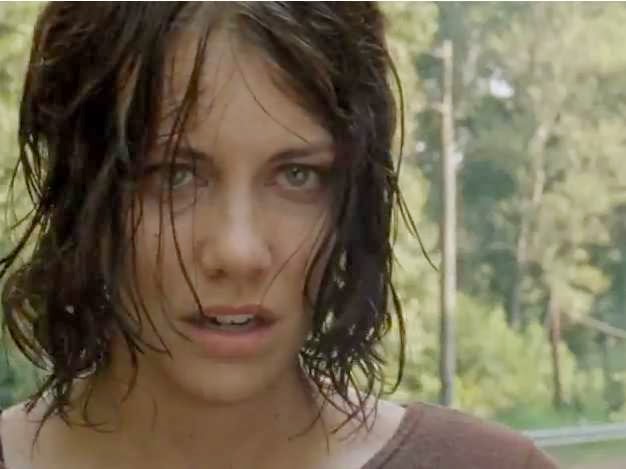The Power of Hope
"If you don't have hope, what's the point of living?" — Herschel, "The Walking Dead"
Hope is a powerful, important thing. It can get you through tough times and tough circumstances. But where does hope figure in when you're considering the apocalypse? That's a question that "The Walking Dead" continues to wrestle with every few episodes.
Some might call the world of "The Walking Dead" a hopeless place. I certainly see that. It seems like every time there is a glimmer of hope or faith for one of these characters, or the group, it is quickly eroded. How do you find the strength to move forward in hope when everyone and everything in the world can lead to your demise? How do you continue to maintain faith in the future when everything seems so bleak.
Some questioned the first batch of episodes this season, but I thought they laid a lovely groundwork for considering these ideas. Herschel, as he has been during his run on the show, seemed to be the voice of faith and hope. He pointed to the character of those living during the end, and how they treated and cared for one another being symbolic of the hope left for humanity in desperate times.
The survivors, too, had found a way to live in peace. The prison — which during better times was a symbol of fear and life gone wrong — became a place of hope and solace. They turned it into a home, and they found community and security there. But as has so often been the case during the four seasons of "The Walking Dead," that kind of hope and peace doesn't last. And in the mid-season finale, the darkness of man led to the erosion of that place of comfort, scattering our protagonists to the wind.
It seems these final eight episodes, then, are dedicated to how they grapple with these ideas and needs of humanity in a world so broken. The second half premier dealt with the idea of community and companionship. Michone and Carl spent time thinking they could go it alone, thinking that might be the best option, only realize they needed company.
Sunday's episode, which revealed the fate of the rest of those scattered to the world, dealt with the idea of finding hope when your last best bet has been dashed. The opening monologue, which was a journal entry from Beth talking about the hope and home the prison represented, was heart-breaking. At the end of that opening, after realizing that she's lost her home and most of that community, Beth had to struggle to find purpose and hope.
The same was true of all the bands of survivors. Maggie's hope was in finding Glen. When she didn't find him on the bus, she began to lose a bit of that hope.
Carol's grand return ushered in hope for Tyrone and the kids. There is hope they can find a refuge amid a world gone mad.
But perhaps the most fascinating story was Glen himself. He found himself alone in the prison, surrounded by walkers. Instead of being weary, he clung to the lessons of Herschel. He still has faith. He still has belief. And that spurred him to carry on, and to save another.
Some might be critical of these last two episodes because they didn't have any big momentum in terms of plot. But the focus on these characters, and how they find hope and faith after the loss of both, provides a fascinating backdrop for what comes next.




Comments
Post a Comment